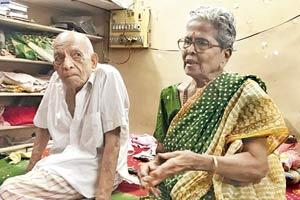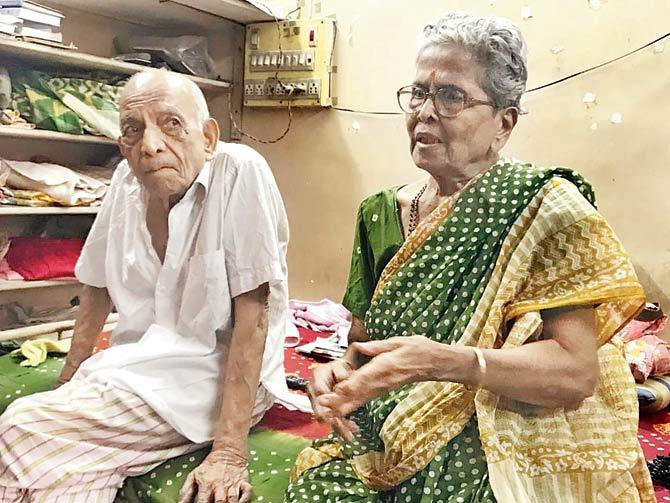While doctors feel apex court's decision will help terminally-ill patients, the Lavates find it 'half-baked'


Narayan and Iravati Lavate
ADVERTISEMENT
The Supreme Court's verdict on passive euthanasia has been met with lively cheer by the city's doctors and a deathlike disapproval by Iravati and Narayan Lavate, who had appealed to the President to grant them permission for active euthanasia. While doctors feel this decision will help terminally-ill patients choose a dignified death and lessen financial burden on their families, the Lavates are of the opinion that it is 'half-baked'.

The apex court's landmark verdict has recognised the right of a terminally-ill patient to execute a "living will" to refuse medical treatment for dying with dignity. Explaining the living will, Dr SS Utture, president of Maharashtra Medical Council said, "Just like financial wills, any adult can make a living will expressing their concerns in advance about the future line of treatment they would want to opt for if they go into a vegetative state. This can be a boon for patients suffering from cancer or heart diseases."
Guidelines will stop misuse
This provision could have helped KEM nurse Aruna Shanbaug, who lay in a vegetative state for 42 years after being sexually assaulted by a ward boy. In 2009, journalist-activist Pinki Virani had filed a petition in SC seeking passive euthanasia for Shanbaug, but it was turned down in 2011. Shanbaug passed away in 2015 because of pneumonia.
"In Aruna's case, we couldn't do anything as she had already slipped into a vegetative state. But through this judgment, a person can make a living will beforehand, seeking the right to die if they suffer from such a medical condition in the future. Also, the judgment has provided strict guidelines for the family and doctors to follow to ensure no one misuses it," said Dr Avinash Supe, dean, KEM hospital. For Virani, "Today is Aruna's day. This is a landmark judgment. Aruna was deprived of dignity in death. This judgment will now give people a choice."
Lessen financial burden
Dr R K Deshpande, surgical oncologist at the Asian Cancer Institute feels this would also help lessen financial burden on families of such patients."If monitored and administered properly, this would help lessen what can be termed as unnecessary and eventually, futile prolongation of human suffering and the financial burden on the family," he said.
Dr Pradeep Gadge, leading diabetologist, said, "I feel this was needed. I have seen many patients live a vegetative life after becoming brain dead. I think this verdict will help such patients. Prolonging life should be our motto as doctors instead of prolonging death and making the patient suffer."
However, human rights activist Pushpa Tolani feels this can be misused. "Allowing euthanasia for all would lead to its misuse. Abroad, where active euthanasia is legal, reports have been published where family members of the patient have chosen euthanasia without consulting them. Presently, this verdict is at least one step forward in dying with dignity," she said.
Inspect active euthanasia
But the Lavates, who have sought permission for active euthanasia because they fear falling terminally ill, are far from impressed with the SC. Narayan said, "The verdict states the person can be permitted euthanasia if he slips into a coma or is in a vegetative state. But my question is, why wait for it to go to such an extent? I don't want to wait till I become completely bedridden. It seems half-baked; there is also a need to introspect active euthanasia."
The couple now plans on filing a contempt petition against the state government if they do not receive any response to their plea by the end of the month. "As per a Bombay High Court verdict, the government needs to respond to a plea within 90 days. By March 31, the span would expire, so if we don't get any reply, then it would be counted as contempt of court," he said.
Also Read: Supreme Court allows 'living will' and passive euthanasia
Inputs by Chaitraly Deshmukh and Agencies
Catch up on all the latest Mumbai news, crime news, current affairs, and also a complete guide on Mumbai from food to things to do and events across the city here. Also download the new mid-day Android and iOS apps to get latest updates
 Subscribe today by clicking the link and stay updated with the latest news!" Click here!
Subscribe today by clicking the link and stay updated with the latest news!" Click here!







